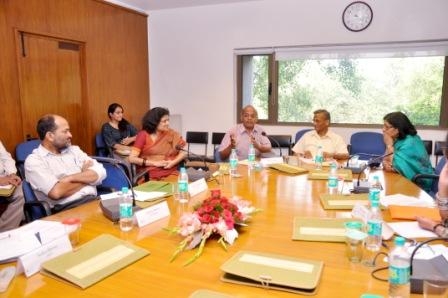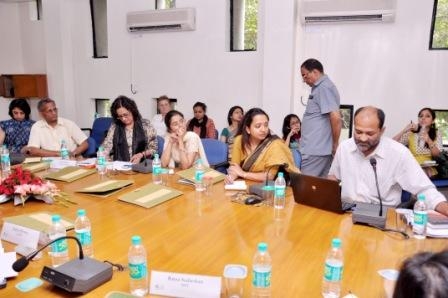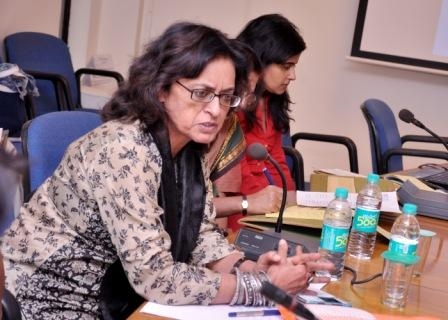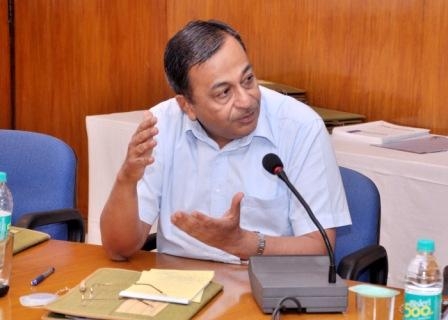Gender-Inclusive Macroeconomic Policy Management
03 May 2013
Past Event
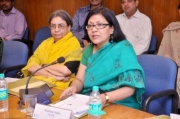
This one day workshop held at NCAER presented findings from NCAER’s Initiative on Gender-Inclusive Macroeconomic Policy Management which forms part of the UNDP’s Grant Agreement Project, “Policy and Advocacy”. The project is led by Dr Anushree Sinha, Senior Fellow at NCAER and aims to augment the Indian government’s capacity in gender-focused macroeconomic policy-making. This is of vital importance in an environment where India still has a lot of ground to cover to ensure equality for women and arrest all forms of violence against them
At the workshop the authors presented all the modules to a panel of professionals engaged in gender studies.
The first module on “Macroeconomics Analysis of Gender” was presented by Dr. Anushree Sinha, NCAER with Dr. Preet Rustagi, Institute of Human Development (IHD) as the discussant. Dr Anushress Sinha said, the concept of genderneutrality in policy-making is misconstrued as being “gender-blind” – an error, as women and men are not at par in terms of their social development. Women’s empowerment has major growth implications for the entire economy. The main aim of the initiative is to bring attention to gender bias in all areas of policy-making with an urgent need to focus on “gender-focused” or “gender-responsive” policy design.
Dr. A C Kulshreshtha, (Former DDG, CSO) presented the second module on “Gender & Macroeconomics in the Framework of SNA”. This module focuses on the official computational methods of National Accounts Statistics and the lack of recognition of women’s unpaid services, such as those of homemakers. Valuation techniques were discussed to formally acknowledge such work, perhaps in the form of satellite accounts in the NAS. Prof. Manoj Panda, IEG was the discussant for this module.
The “Macroeconomics Policy for Gender and Work” module was presented by Prof. Indira Hirway, Centre for Development Alternatives (CFDA) and discussed by Ms. Ratna Sudarshan from ISST. The concepts of paid and unpaid SNA and NonSNA work in the production and general production boundaries were discussed and distinguished. The importance of time-use surveys in determining how women utilize their time was highlighted. It was noted that policies to bring about equal opportunity for women have to specifically focus on equal sharing of house-work by men and women and on promoting skills and employability of women.







